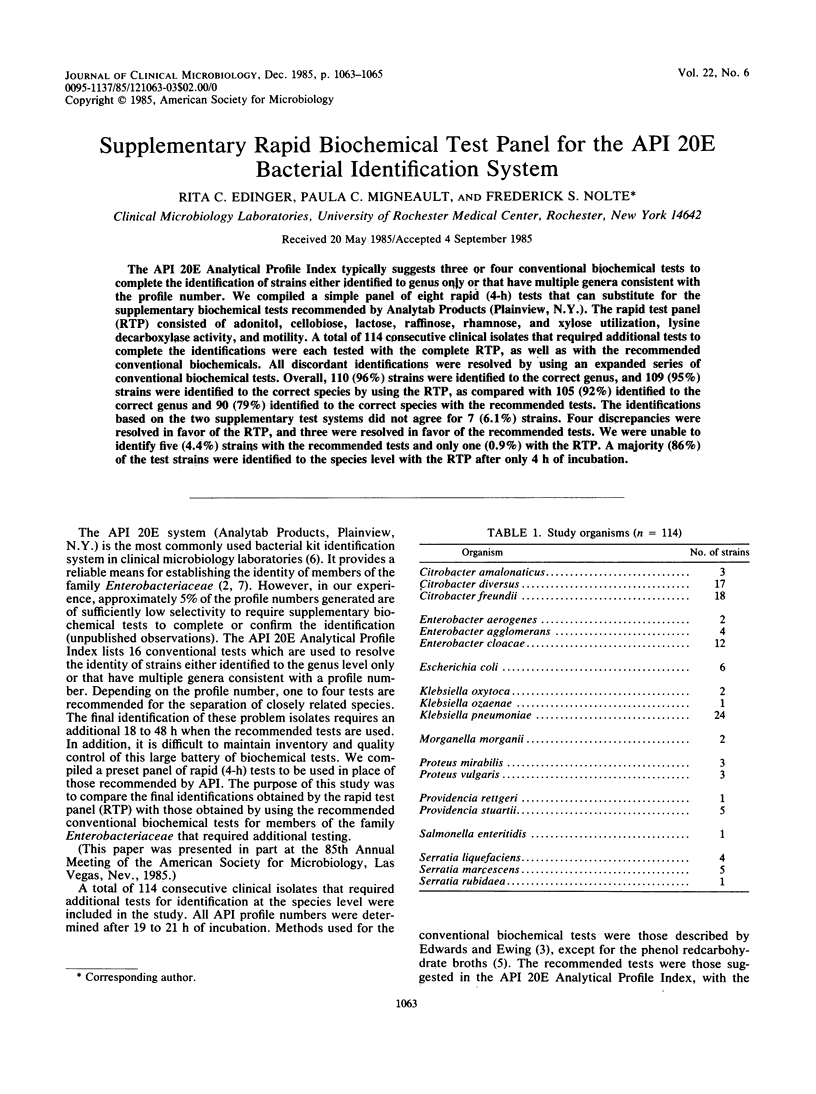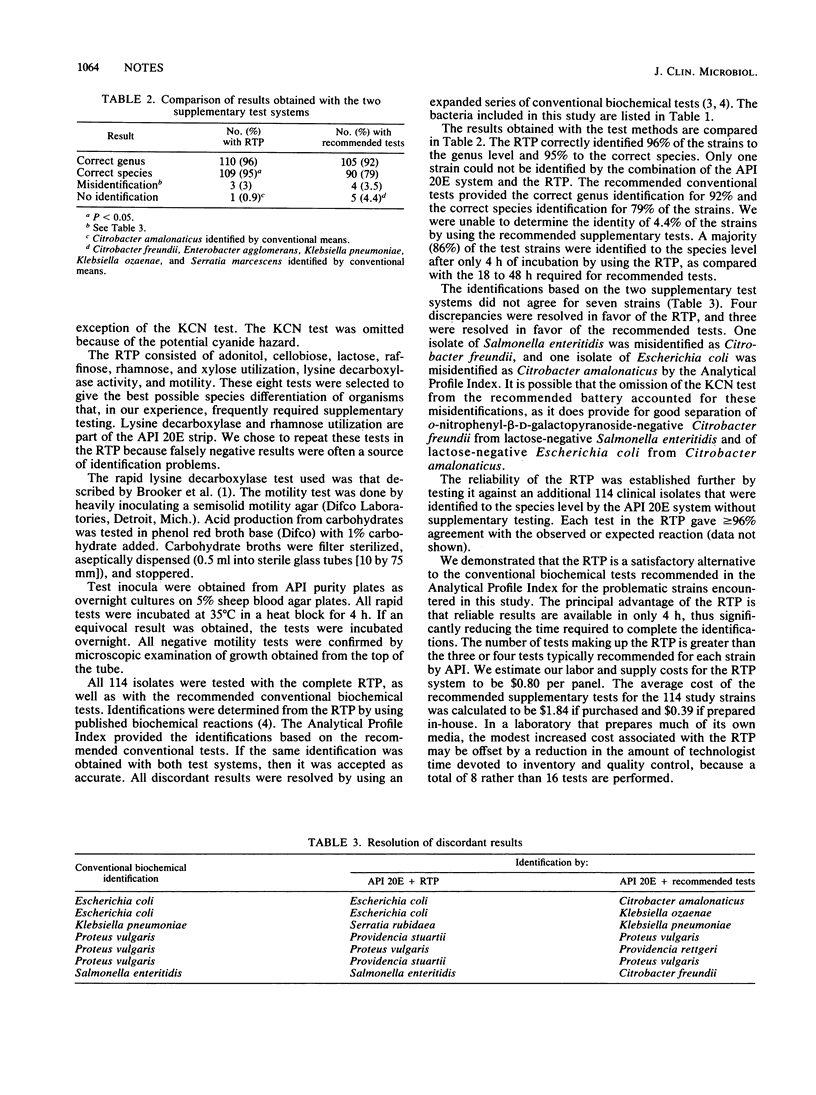Abstract
The API 20E Analytical Profile Index typically suggests three or four conventional biochemical tests to complete the identification of strains either identified to genus only or that have multiple genera consistent with the profile number. We compiled a simple panel of eight rapid (4-h) tests that can substitute for the supplementary biochemical tests recommended by Analytab Products (Plainview, N.Y.). The rapid test panel (RTP) consisted of adonitol, cellobiose, lactose, raffinose, rhamnose, and xylose utilization, lysine decarboxylase activity, and motility. A total of 114 consecutive clinical isolates that required additional tests to complete the identifications were each tested with the complete RTP, as well as with the recommended conventional biochemicals. All discordant identifications were resolved by using an expanded series of conventional biochemical tests. Overall, 110 (96%) strains were identified to the correct genus, and 109 (95%) strains were identified to the correct species by using the RTP, as compared with 105 (92%) identified to the correct genus and 90 (79%) identified to the correct species with the recommended tests. The identifications based on the two supplementary test systems did not agree for 7 (6.1%) strains. Four discrepancies were resolved in favor of the RTP, and three were resolved in favor of the recommended tests. We were unable to identify five (4.4%) strains with the recommended tests and only one (0.9%) with the RTP. A majority (86%) of the test strains were identified to the species level with the RTP after only 4 h of incubation.
Full text
PDF


Selected References
These references are in PubMed. This may not be the complete list of references from this article.
- Brooker D. C., Lund M. E., Blazevic D. J. Rapid test for lysine decarboxylase activity in Enterobacteriaceae. Appl Microbiol. 1973 Oct;26(4):622–623. doi: 10.1128/am.26.4.622-623.1973. [DOI] [PMC free article] [PubMed] [Google Scholar]
- Edberg S. C., Atkinson B., Chambers C., Moore M. H., Palumbo L., Zorzon C. F., Singer J. M. Clinical evaluation of the MICRO-ID, API 20E, and conventional media systems for identification of Enterobacteriacea. J Clin Microbiol. 1979 Aug;10(2):161–167. doi: 10.1128/jcm.10.2.161-167.1979. [DOI] [PMC free article] [PubMed] [Google Scholar]
- Farmer J. J., 3rd, Davis B. R., Hickman-Brenner F. W., McWhorter A., Huntley-Carter G. P., Asbury M. A., Riddle C., Wathen-Grady H. G., Elias C., Fanning G. R. Biochemical identification of new species and biogroups of Enterobacteriaceae isolated from clinical specimens. J Clin Microbiol. 1985 Jan;21(1):46–76. doi: 10.1128/jcm.21.1.46-76.1985. [DOI] [PMC free article] [PubMed] [Google Scholar]
- Marymont J. H., 3rd, Marymont J. H., Jr, Gavan T. L. Performance of enterobacteriaceae identification systems. An analysis of College of American Pathologists Survey data. Am J Clin Pathol. 1978 Sep;70(3 Suppl):539–547. [PubMed] [Google Scholar]
- Smith P. B., Tomfohrde K. M., Rhoden D. L., Balows A. API system: a multitube micromethod for identification of Enterobacteriaceae. Appl Microbiol. 1972 Sep;24(3):449–452. doi: 10.1128/am.24.3.449-452.1972. [DOI] [PMC free article] [PubMed] [Google Scholar]


